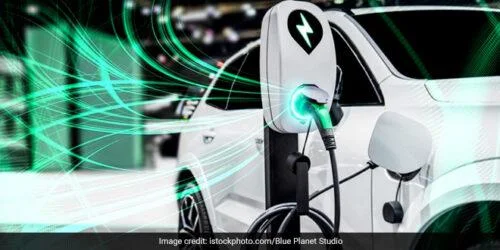Table of Contents

Powering the Drive: Electric Vehicle Batteries Background
Electric Vehicle Batteries: The anticipated expansion of the electric vehicle market in India hinges on advancements in battery technology, which in turn translate into improved economics and consumer satisfaction. Nevertheless, there is still much to be desired from today’s Li-ion batteries.
Batteries for electric vehicles: expanding the capabilities of battery technology to hasten adoption
- The global movement towards environmentally conscious and sustainable transportation is spearheaded by the increasing acceptance of Electric Vehicles (EVs).
- The continuous advancement of Electric Vehicle Batteries (EVBs) is a crucial factor in realizing the complete potential of electric vehicles.
- Although it is clear that electric mobility is on the rise, the search for better battery technologies is a crucial stimulant for guaranteeing both the quick development of EVs and their smooth integration into the general transportation fleet.
- With the shift in the car industry toward electrification, batteries’ price, performance, and efficiency become critical.
- This introduction delves into the vital role that Electric Vehicle Batteries (EVBs) play in accelerating the uptake of electric vehicles.
How do lithium batteries Operate?
- A battery is made up of an anode, cathode, separator, electrolyte, and two current collectors (positive and negative). The anode and cathode store the lithium.
- The electrolyte carries positively charged lithium ions from the anode to the cathode and vice versa through the separator.
- The movement of the lithium ions creates free electrons in the anode which creates a charge at the positive current collector.
- The electrical current then flows from the current collector through a device being powered (cell phone, computer, etc.) to the negative current collector.
- The separator blocks the flow of electrons inside the battery.
What are the issues with Li-ion Batteries
- Limited Lifespan:
- Li-ion batteries can only hold a certain amount of charge and discharge before their capacity starts to decrease.
- This may lead to a shorter battery life, particularly if improper maintenance is neglected or the battery is exposed to harsh environments.
- Capacity Fade:
- Li-ion batteries have a tendency to lose capacity over time, which lowers their energy storage capability. Capacity fade can be accelerated by elements like high operating temperatures and frequent deep discharges.
- Safety Concerns:
- Thermal runaway, fire, and explosion can occur from Li-ion batteries since they are susceptible to overcharging, overdischarging, and exposure to high temperatures. To reduce these hazards, effective control systems and safety precautions are essential.
- Heat Production:
- Recharging and depleting Batteries made of Li-ion produce heat.
- Improper management of heat can result in decreased lifespan, decreased performance, and safety hazards.
- Cost:
- Cobalt is one of the most costly materials used in Li-ion batteries. This raises the price of producing batteries overall.
- There is continuous work to create substitute chemicals that are less expensive and harmful to the environment.
- Time Spent Charging:
- Even though Li-ion batteries can be charged more quickly than certain other battery technologies, quicker charging is still desired. If not correctly handled, rapid charging might have an adverse effect on the battery’s long-term health.
- For Further information Click Here
FAQ
Q1 : What types of batteries are commonly seen in electric vehicles?
Ans : The most common type of battery used in electric vehicles is lithium-ion (Li-ion) due to its high energy density, lightweight design, and rechargeability.
Q2: What is the typical lifespan of Electric Vehicle Batteries?
Answer: The life of electric car batteries can range from 8 to 15 years, depending on usage, charging practices, and climatic conditions.
Q3: How frequently should Electric Vehicle Batteries be changed?
Ans: The frequency of battery replacement depends on the type of vehicle, usage habits, and battery technology. Modern electric cars are characterized by long battery lives.
Q4: Is it possible to recycle the batteries from electric cars?
The answer is yes, you can recycle electric car batteries. Many manufacturers and recycling facilities use processes that make it feasible to recover valuable elements from used batteries.
Q5: Can you explain range anxiety and how does it relate to electric car batteries?
Answer: Range anxiety is the worry that an electric vehicle’s battery will run out of power before reaching its destination. Efforts to increase the range of electric vehicles by improving battery technology help to allay this concern.
Q6: How much time does it take to charge the battery in an electric car?
Ans: Charging times differ according to battery capacity and charger type. Fast chargers may deliver a substantial charge in around 30 minutes, but standard home chargers might take several hours.
Thanks for sharing. I read many of your blog posts, cool, your blog is very good. https://accounts.binance.com/sl/register?ref=PORL8W0Z
Your point of view caught my eye and was very interesting. Thanks. I have a question for you.
Can you be more specific about the content of your article? After reading it, I still have some doubts. Hope you can help me.
Your point of view caught my eye and was very interesting. Thanks. I have a question for you.
Thanks for sharing. I read many of your blog posts, cool, your blog is very good.